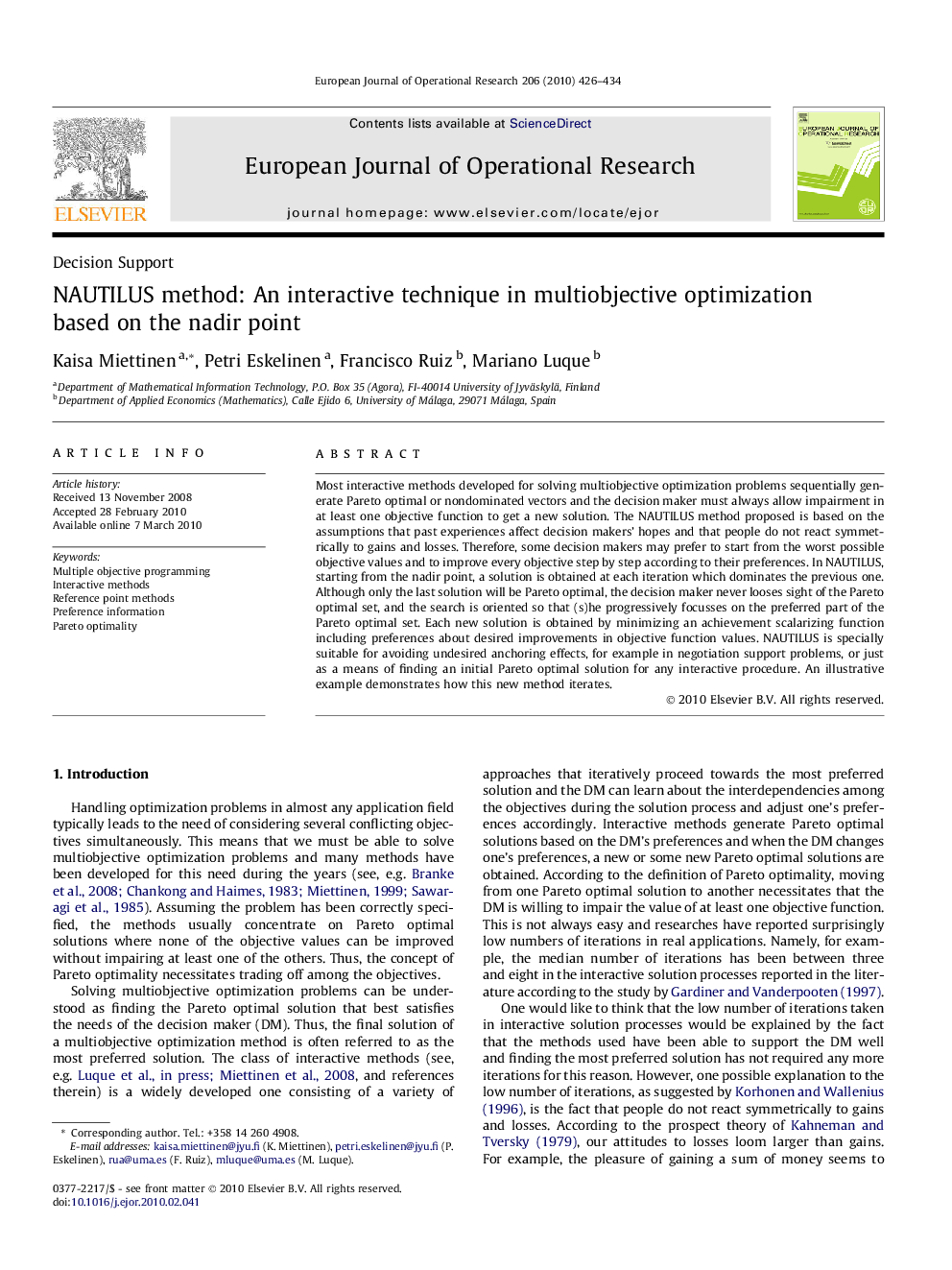| Article ID | Journal | Published Year | Pages | File Type |
|---|---|---|---|---|
| 478664 | European Journal of Operational Research | 2010 | 9 Pages |
Most interactive methods developed for solving multiobjective optimization problems sequentially generate Pareto optimal or nondominated vectors and the decision maker must always allow impairment in at least one objective function to get a new solution. The NAUTILUS method proposed is based on the assumptions that past experiences affect decision makers’ hopes and that people do not react symmetrically to gains and losses. Therefore, some decision makers may prefer to start from the worst possible objective values and to improve every objective step by step according to their preferences. In NAUTILUS, starting from the nadir point, a solution is obtained at each iteration which dominates the previous one. Although only the last solution will be Pareto optimal, the decision maker never looses sight of the Pareto optimal set, and the search is oriented so that (s)he progressively focusses on the preferred part of the Pareto optimal set. Each new solution is obtained by minimizing an achievement scalarizing function including preferences about desired improvements in objective function values. NAUTILUS is specially suitable for avoiding undesired anchoring effects, for example in negotiation support problems, or just as a means of finding an initial Pareto optimal solution for any interactive procedure. An illustrative example demonstrates how this new method iterates.
